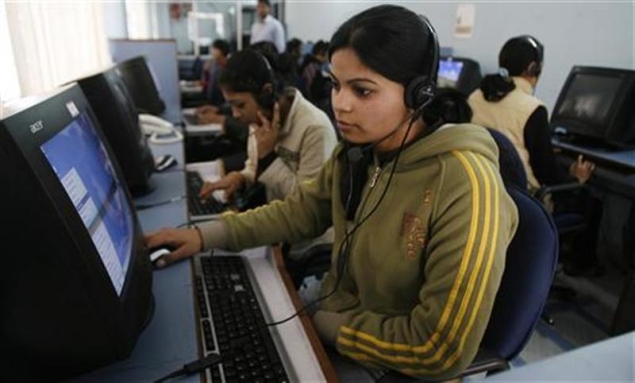- Home
- Internet
- Internet News
- Women in India lag in Internet use: Report
Women in India lag in Internet use: Report

The report, funded by the global chipmaker with input from the United Nations and U.S. State Department, among others, points to stubborn gaps in women's access to the Internet in Africa, the Middle East and other developing parts of the world.
It found women are nearly 25 percent less likely than men to be online in those regions, and called on policymakers and technology companies to take steps such as making it easier to access the Internet on mobile phones, allowing free mobile content and boosting digital literacy to shrink the gap.
Surveys and interviews with more than 2,200 women and girls focused on four developing countries - Egypt, India, Mexico and Uganda - found that Internet access was critical for women to earn more money or search and apply for jobs.
"With the powerful capabilities the Internet enables - to connect, to learn, to engage, to increase productivity, and to find opportunities - women's lack of access is giving rise to a second digital divide, one where women and girls risk being left further and further behind," said Melanne Verveer, ambassador for global women's issues at the State Department.
Although the United States and other developed nations see fairly high levels of overall Internet access and usage among women, some gaps remain, mostly in rural areas or among the poor.
In the developing world, however, the gap is far wider.
Just 11 percent of men and women in India have Internet access compared to 79 percent in the United States, said Shelly Esque, a vice president for the chipmaker and president of its educational foundation.
Thursday's report shows 600 million women in developing nations, or 21 percent, are online now, and another 450 million are expected to gain Internet access by 2016. But taking extra steps could help bring an additional 150 million women and girls online over the next three years, the report said.
Good for global economy
Esque pointed to the role technology played in the Arab Spring revolts, particularly in Egypt.
"Information was such a powerful tool," she told Reuters. "What would be the potential for a country like that if they were able to have more equal access? We need to work on that."
A U.N. Human Rights Council resolution last year recognized the power of the Internet to spur progress and encouraged countries to promote and facilitate access to it.
Still, many women surveyed by Intel cited barriers ranging from the belief that Internet use was not "appropriate" for them to the cost of getting connected. Illiteracy and lack of awareness about potential uses also were factors.
Increased access would not only improve women's lives but also boost the global economy, according to Intel's report.
It would add between $50 billion and $70 billion in potential new market opportunities, the report said. It could also bring another $13 billion to $18 billion each year globally to the market value of goods and services - a measure known as gross domestic product or GDP.
The findings by the Santa Clara, California-based company aim to encourage other technology companies, policymakers and nongovernmental groups to take steps to get more women and girls online, it said.
"Without access to the Internet, women lack access to its tools, resources and opportunities," the report said. "This gap disadvantages not just women, but their families, communities and countries."
© Thomson Reuters 2012
Get your daily dose of tech news, reviews, and insights, in under 80 characters on Gadgets 360 Turbo. Connect with fellow tech lovers on our Forum. Follow us on X, Facebook, WhatsApp, Threads and Google News for instant updates. Catch all the action on our YouTube channel.
Related Stories
- Samsung Galaxy Unpacked 2026
- iPhone 17 Pro Max
- ChatGPT
- iOS 26
- Laptop Under 50000
- Smartwatch Under 10000
- Apple Vision Pro
- Oneplus 12
- OnePlus Nord CE 3 Lite 5G
- iPhone 13
- Xiaomi 14 Pro
- Oppo Find N3
- Tecno Spark Go (2023)
- Realme V30
- Best Phones Under 25000
- Samsung Galaxy S24 Series
- Cryptocurrency
- iQoo 12
- Samsung Galaxy S24 Ultra
- Giottus
- Samsung Galaxy Z Flip 5
- Apple 'Scary Fast'
- Housefull 5
- GoPro Hero 12 Black Review
- Invincible Season 2
- JioGlass
- HD Ready TV
- Latest Mobile Phones
- Compare Phones
- Tecno Pova Curve 2 5G
- Lava Yuva Star 3
- Honor X6d
- OPPO K14x 5G
- Samsung Galaxy F70e 5G
- iQOO 15 Ultra
- OPPO A6v 5G
- OPPO A6i+ 5G
- Asus Vivobook 16 (M1605NAQ)
- Asus Vivobook 15 (2026)
- Brave Ark 2-in-1
- Black Shark Gaming Tablet
- boAt Chrome Iris
- HMD Watch P1
- Haier H5E Series
- Acerpure Nitro Z Series 100-inch QLED TV
- Asus ROG Ally
- Nintendo Switch Lite
- Haier 1.6 Ton 5 Star Inverter Split AC (HSU19G-MZAID5BN-INV)
- Haier 1.6 Ton 5 Star Inverter Split AC (HSU19G-MZAIM5BN-INV)







![[Partner Content] OPPO Reno15 Series: AI Portrait Camera, Popout and First Compact Reno](https://www.gadgets360.com/static/mobile/images/spacer.png)









